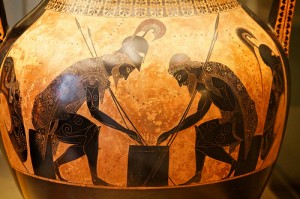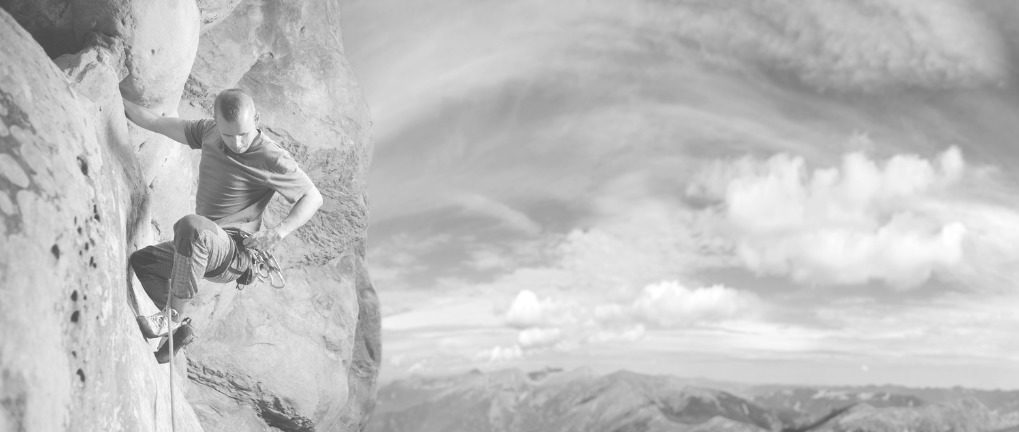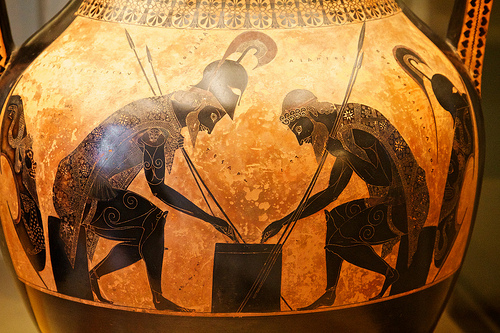 As told in Homer’s “Odyssey,” when the Ithacan King Odysseus was called upon to join the Greek armies in their battle with Troy, he was obligated to leave both his kingdom and his new born son, Telemachus. He didn’t know when, or if, he would return.
As told in Homer’s “Odyssey,” when the Ithacan King Odysseus was called upon to join the Greek armies in their battle with Troy, he was obligated to leave both his kingdom and his new born son, Telemachus. He didn’t know when, or if, he would return.
To protect and guide his son, Odysseus asked a close friend and warrior companion to assume those obligations. The charge he gave to this guardian was simple but profound; “I entrust my family to you and charge you to keep all safe until my return.”
The warrior’s name was “Mentor.”
As the legend suggests the obligation to mentor the young and the responsibilities that role entails are weighty indeed. The failure of those qualified to assume them, however, ultimately leads to a youth that lack guidance and protection (and a kingdom that lacks leaders who will lead it properly).
Much as Mentor guided Telemachus, we are obliged to guide those in need of our experience and wisdom. We also must recognize our own need for mentoring at different stages of our life. To mentor well, or to find “good” mentoring, we need to know what it is based upon and how to know it when we see it. Here are 3 principles to help you be a better mentor, or to know a true mentor when you see one.
(1) Wisdom is an earned commodity.
In Homer’s Odyssey,Mentor was characterized as a seasoned warrior. He knew what he was talking about because he had lived it. His function was not only to teach a skill or skills, but also to impart wisdom and share knowledge to someone less experienced.
Wisdom is not simply information or knowledge but rather, the ability to apply that information and knowledge in a successful manner. Wisdom focuses on results and consequences. Wisdom understands the limits of any theory and the danger presented by fame and hubris.
Wisdom is earned, and it often is earned at the cost of a few scars. Mentors share their scars in the hope their charges will learn from their hard won understanding.
True mentors don’t need you to be impressed, they know who and what they are and that’s enough.
As one of my Drill Sergeants shared when he was training us to survive in combat, “Gentlemen, you might want to pay attention to what I’m telling you because I didn’t get here ‘cause I’m pretty, and I sure didn’t live this long by being stupid!”
(2) In a 2 dimensional world, mentoring is a 3 dimensional job!
We love our screens: TV screens, computer screens, iPhone screens, cell phone screens. The problem with screens teaching us things about life, however, is that life is 3 dimensional experience and screens only give us a 2 dimensional focus.
Screens give us height and width, but no depth!
Mentoring is about the depth. Mentoring is ultimately an invitation to develop a direct relationship that has a unique depth to it. Depth is created by when the mentor and the mentee commit themselves to a relationship based upon honesty, sincerity, compassion and, most importantly, humility.
We now know that we all possess what are called “mirror neurons.” Mirror neurons fire sympathetically when we are in connection with another person. They allow our nervous system to literally experience a mirror image of another person’s experience, as though the observer was acting in that way themselves.
Good mentors model the behaviors other seek to learn. They “walk the walk,” so the 2 dimensional skill of “talking the talk” that some segments of our culture pay so much attention to, is rendered mostly irrelevant. Mentors teach us that men and women of integrity don’t need to make promises because their life is based on a simple premise; they do what they say they will do.
But to teach this type of integrity, the mentor must be willing to be present in all of his or her humanity, and let go of any need to be a two dimensional cut out of Superman or Superwoman. Mentors don’t tell you how to know what they know; instead they help lead you to find your own answers.
Mentoring is ultimately about sharing your life story with another in a way that serves their growth, not your ego. It’s neat to be the smartest person in the room, but true greatness lies in helping others to be better than you have been capable of being.
Mentor was a servant to the King and the Kingdom, and mentors are ultimately our culture’s samurai, which means in Japanese, “one who serves.”
(3) The kingdom’s future will rise or fall based on the quality of its mentors.
Mentor’s duties affected not only the life of the future king, Telemachus, but the abiding welfare of the kingdom. As go the young, so goes the kingdom.
Mentoring is a duty we owe to both our young and ourselves. Those of us who have survived life’s hard challenges and difficult times possess critical and hard won wisdom. It needs to be shared.
In a time where the idea of shared sacrifice and shared responsibility are passé in the eyes of some, and an impediment to personal success in the eyes of others, the need for positive, compassionate mentorship is even more desperately needed.
In a time where many espouse a belief in “every man for himself,” it’s important to remember there is another way, a more honorable way, a better way.
There is the way of Mentor, who gave his word to his warrior companion that until the King’s return,Mentor would ensure that “all will be kept safe.”
To ensure our society grows, improves, and becomes a better and more just place for those who follow in our footsteps, we must all be willing to be Mentor . . .
. . . To keep all safe. . .
. . . Until the King’s return!
Photo credit: Nick in exsilio via Flickr

